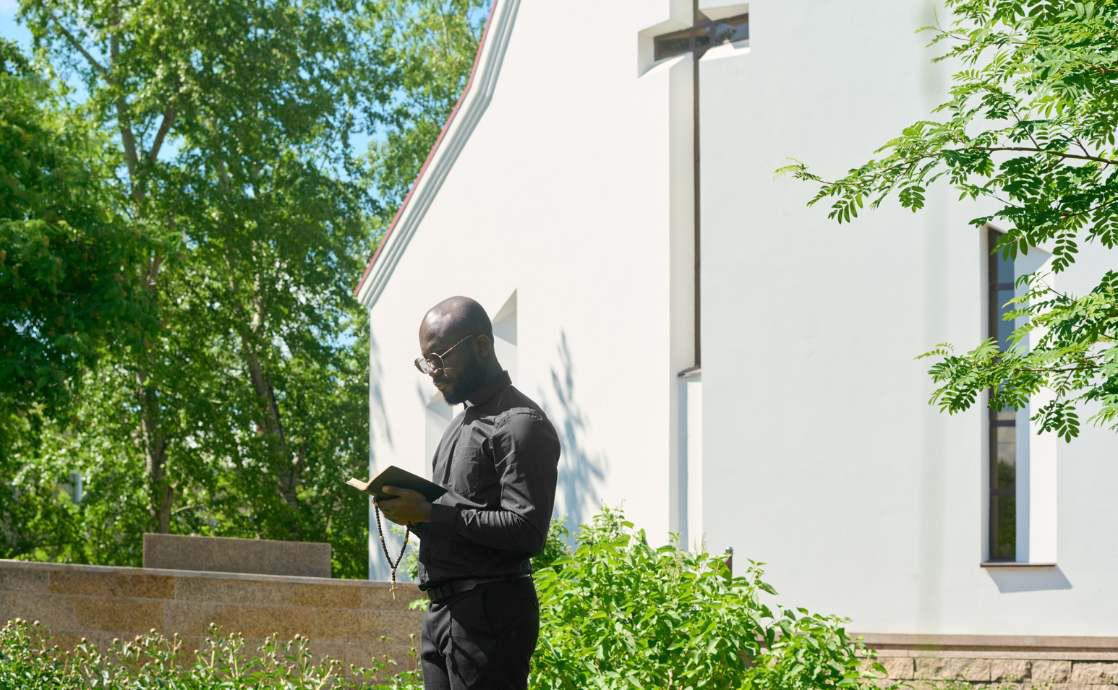In examining the remarkable journey of a Christian Reverend who ventures into the world of Bahá’í teachings, one is compelled to consider: what is the interplay between faith and intellect? This intriguing question invites both introspection and a playful exploration of one’s spiritual quest. The following discourse delves into the multidimensional facets of this odyssey, presenting an extensive overview that encapsulates both the theological and philosophical dimensions of this spiritual exploration.
From its inception, the Bahá’í Faith has emphasized the unity of mankind and the synchronicities found in the world’s religions. The Reverend’s journey begins with a foundational inquiry: how does the Bahá’í framework align or contrast with traditional Christian beliefs? This exploration is not merely academic; rather, it constitutes an essential quest for spiritual enrichment and understanding. With Bahá’í teachings asserting that “religion must be the source of unity,” the reverend is prompted to critically examine his theological underpinnings.
The intellectual odyssey begins in earnest with the exploration of Bahá’u’lláh’s writings, where the principle of progressive revelation emerges as a cornerstone. The notion that each religion represents an evolutionary step in humanity’s spiritual development challenges the Reverend to expand his lexicon of faith. Progressive revelation posits that divine guidance is not static but rather continually unfolds, adapted to the exigencies of the times. Herein lies a formidable challenge: reconciling this concept with the exclusivity often inherent in traditional Christian doctrines.
Furthermore, the exploration of the Bahá’í emphasis on the harmony between science and religion serves as a pivotal point of contemplation. This stance posits that true faith is not in opposition to empirical inquiry, a dichotomy that has often plagued religious discourse. The Reverend finds this perspective liberating; it encourages a synthesis between rational thought and spiritual belief. By embracing this duality, one can foster a more inclusive understanding of religious experience—an understanding that transcends dogma.
As the Reverend delves deeper, he encounters the Bahá’í commitment to social justice, equality, and the advancement of women as integral to spiritual practice. This focus presents a compelling challenge to the traditional ecclesiastical hierarchy often prevalent in Christianity. It prompts a crucial question: how might traditional faith practices evolve to accommodate burgeoning ethical imperatives? The Bahá’í assertion that “the earth is but one country, and mankind its citizens” acts as a clarion call for a redefinition of community and belonging, beckoning the Reverend to reconsider the nature of his congregational model.
The odyssey is also characterized by an exploration of the interconnectivity of all religions. The Reverend embarks on a comparative study of scriptural texts, revealing profound resonances among the teachings of Christ, Muhammad, and the Bab. This scholarly endeavor illuminates the universality of spiritual truths, creating an intricate tapestry that fosters unity amidst diversity. Such revelations may lead to a reevaluation of the Reverend’s previous theological assertions, fostering a more ecumenical approach to spirituality.
A recurrent theme in the Bahá’í teachings is the necessity of an active and conscious spiritual practice. The Reverend grapples with the challenge of integrating these dynamic principles into a robust framework of worship. Here, one can introduce the contemplative role of prayer and meditation as tools for spiritual nourishment. The Bahá’í Faith advocates for the performance of daily prayers, reflective devotions, and service to humanity—each facet inviting a transformative experience that transcends passive belief systems. This challenge sparks creativity in devising holistic rituals that incorporate both traditional and Bahá’í practices.
The journey culminates in the existential realization that this odyssey is not simply an intellectual enterprise but an inherently personal quest. The intersection of faith and reason compels a reexamination of one’s moral compass and a commitment to charitable actions. As the Reverend assimilates Bahá’í principles, his engagements with his community evolve, reflecting a more profound empathy and compassion. The embrace of these teachings inspires a diligent quest for social transformation, compelling the Reverend to serve as an advocate for marginalized voices in a world rife with inequality.
In conclusion, the expedition of a Christian Reverend into the realm of Bahá’í teachings exemplifies a nuanced interplay of faith, intellect, and spirituality. This odyssey beckons others to reflect on their own spiritual paradigms and consider the broader implications of interfaith dialogue. By posing the question of how one might synthesize diverse spiritual insights, the challenge remains eternally relevant: how can we, as seekers of truth, navigate the complexities of our modern existential landscape with integrity and grace? This profound inquiry invites ongoing contemplation and dialogue, fostering an environment where the harmonious convergence of beliefs can flourish, ultimately enriching the collective spiritual tapestry of humanity.
